Detailed Flood Information Key to More Reliable Coastal Storm Impact Estimates
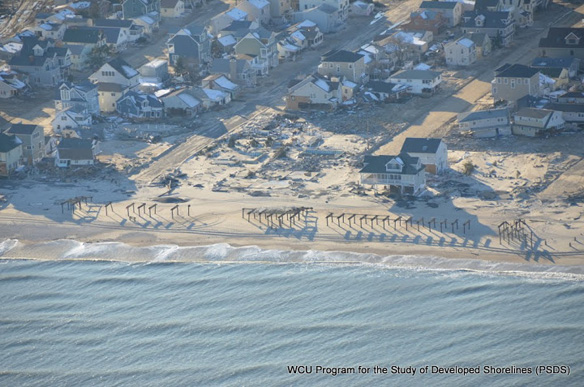
A new study that looked in part at how damage estimates evolve following a storm puts the total amount of building damage caused by Hurricane Sandy for all evaluated counties in New York at $23 billion. Estimates of damage by county ranged from $380 million to $5.9 billion.
Here Are 10 Striking Images of Future Sea Levels
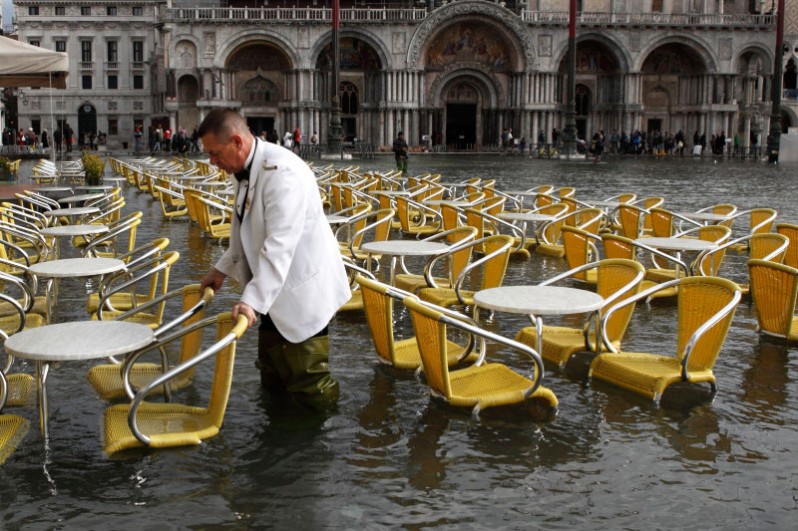
To really understand what climate change could mean for coastal areas, photos really do the trick.
Coastal Nations, Megacities Face 20 Feet of Sea Rise

If, as suggested by a comprehensive new review in the journal Science, 2°C of global warming will lock in at least 20 feet (6 meters) of eventual sea level rise, what would 2°C of warming (3.6°F) mean for the future and heritage of global nations and cities?
Coastal Erosion Eats Away at Mokau, New Zealand
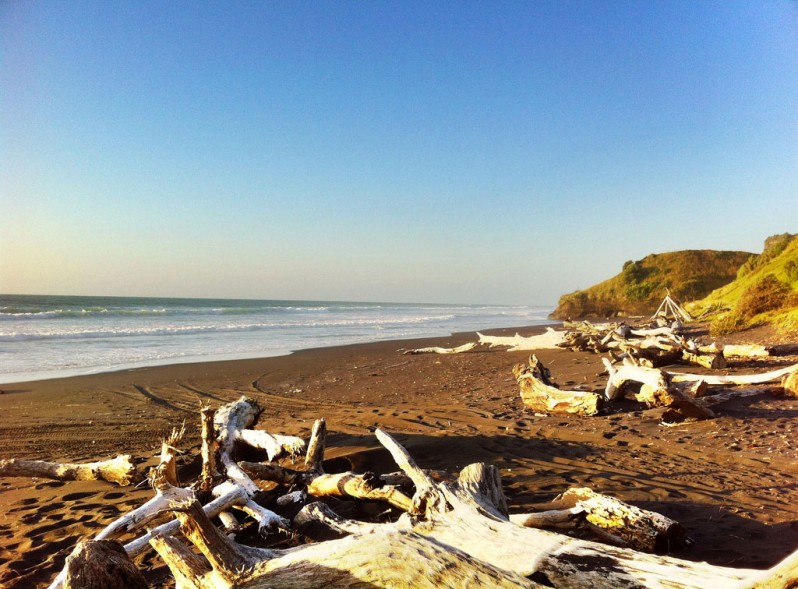
At one pristine coastal spot in the Waikato, less than $100,000 can buy you a tidy, three-bedroom bach. The catch is, the sea may steal the land underneath it at some point in the future.
Erosion and the Disappearance of Senegal’s coast
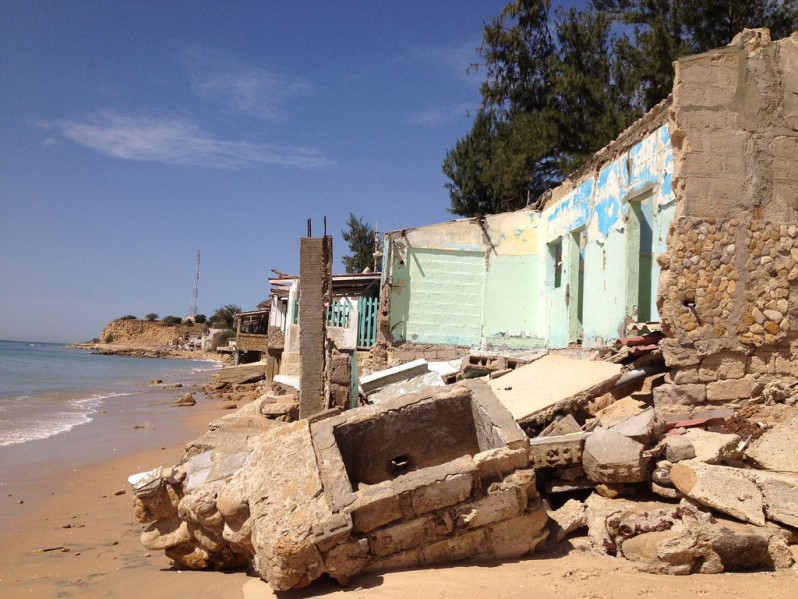
At their recent summit in Germany, G7 leaders agreed to limit global warming to 2°C, but along Senegal’s coast, the consequences of climate change are already tangible. The coastline is suffering severe land loss due to erosion.
Accelerated Warming of the Continental Shelf Off Northeast Coast
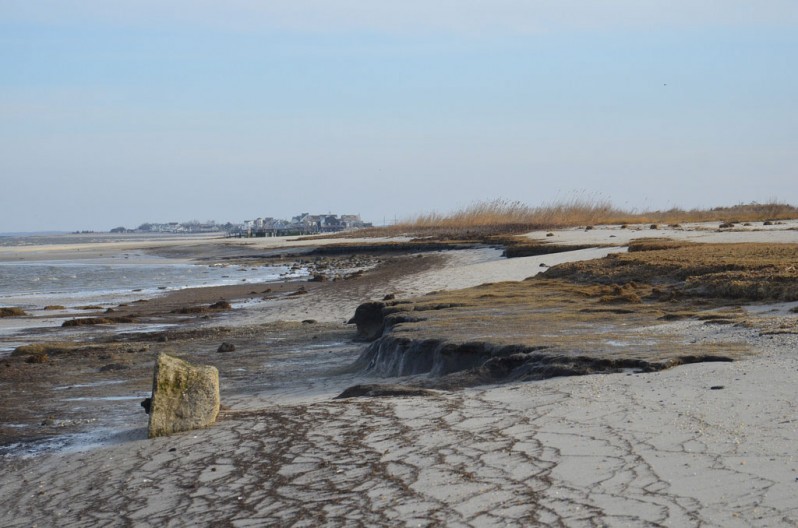
A couple of unexplained large scale changes in the waters off the northeast coast of the U.S. have oceanographers perplexed: an accelerated rate of sea level rise compared to most other parts of the world; and the disturbing signs of collapsing fisheries in the region.
Growing Climate Change Threat to Britain’s Historic Coastline
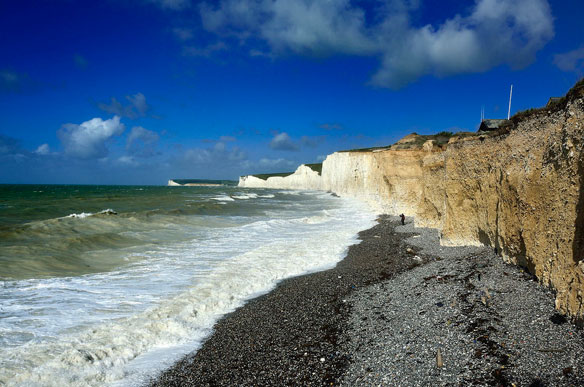
Hundreds of miles of British coastline – so long the symbol of this nation’s island story – are collapsing through worsening erosion. A report by the National Trust (NT) later this year is expected to warn that more action will be needed to protect threatened sites.
15 Facts About Sea Level Rise; A CNN Report
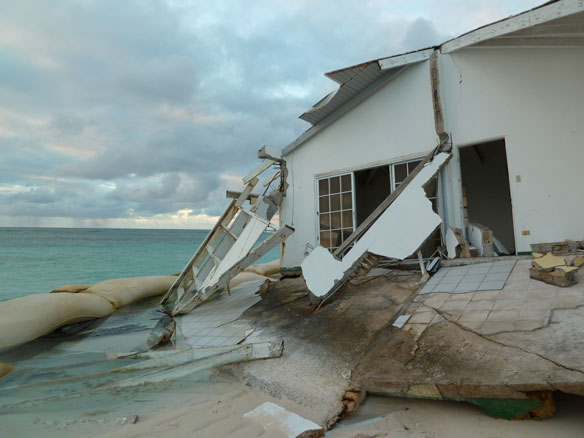
We’re talking about the future here, so estimates vary by source, but the bottom line is this: Our actions today will create the world future generations will have to inhabit. Here’s a look at some of the scariest data about how much ocean levels could rise, and when.
Last Call for Larsen B
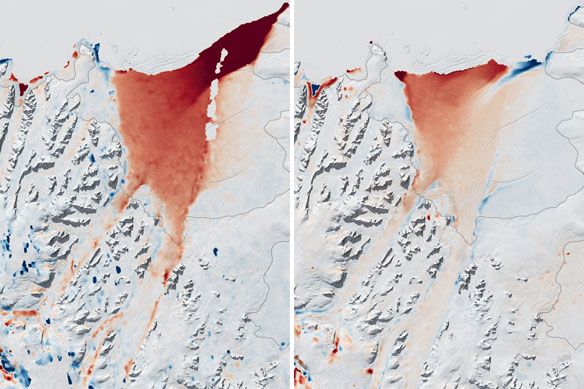
Located on the coast of the Antarctic Peninsula, the Larsen B remnant is about 1,600 square kilometers (625 square miles) in area and as much as 500 meters (1,640 feet) thick. This last remaining section of Larsen B Ice Shelf, which partially collapsed in 2002, is weakening and is likely to disintegrate completely before the end of the decade.
